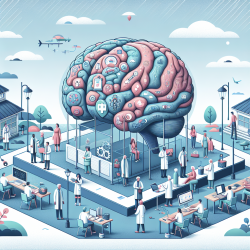Welcome to the Future: ICD-11 Unveiled
The International Classification of Diseases (ICD) has been a cornerstone in healthcare for over a century, enabling practitioners worldwide to share and compare health information seamlessly. The latest revision, ICD-11, is not just an update but a revolutionary step forward, especially for those in the digital age. As a practitioner, understanding and implementing ICD-11 can significantly enhance your skills and service delivery.
Why ICD-11 Matters
ICD-11 introduces a comprehensive framework designed for the modern, interconnected world. It includes:
- A semantic knowledge base called the Foundation, which includes around 80,000 entries and 40,000 synonyms.
- An online coding tool that replaces traditional indexes and offers enhanced functionalities.
- An application program interface (API) for remote access to ICD-11 content and services.
- Support for multiple languages, making it accessible globally.
These innovations make ICD-11 a powerful tool for capturing clinically relevant characteristics and ensuring data consistency across borders.
How Practitioners Can Benefit
For practitioners, ICD-11 offers several advantages:
- Enhanced Accuracy: The new structure allows for more precise coding, which can improve diagnostic accuracy and treatment outcomes.
- Global Consistency: With integrated multilingual support, practitioners can ensure that their data is consistent with global standards.
- Improved Data Analysis: The ability to cluster codes provides a richer data set for analysis, leading to better insights and decision-making.
By embracing ICD-11, practitioners can improve their service delivery and contribute to a more standardized global health information system.
Encouraging Further Research
ICD-11 is not just a tool but a platform for further research and development. Practitioners are encouraged to explore the ICD-11 framework to discover new ways to enhance patient care and health outcomes. Engaging with ICD-11 can open doors to innovative research opportunities and collaborations.
Conclusion
ICD-11 represents a significant leap forward in the classification of diseases, offering practitioners a robust, flexible, and globally consistent tool for improving patient care. By integrating ICD-11 into your practice, you can stay ahead in the ever-evolving field of healthcare.
To read the original research paper, please follow this link: ICD-11: an international classification of diseases for the twenty-first century.










